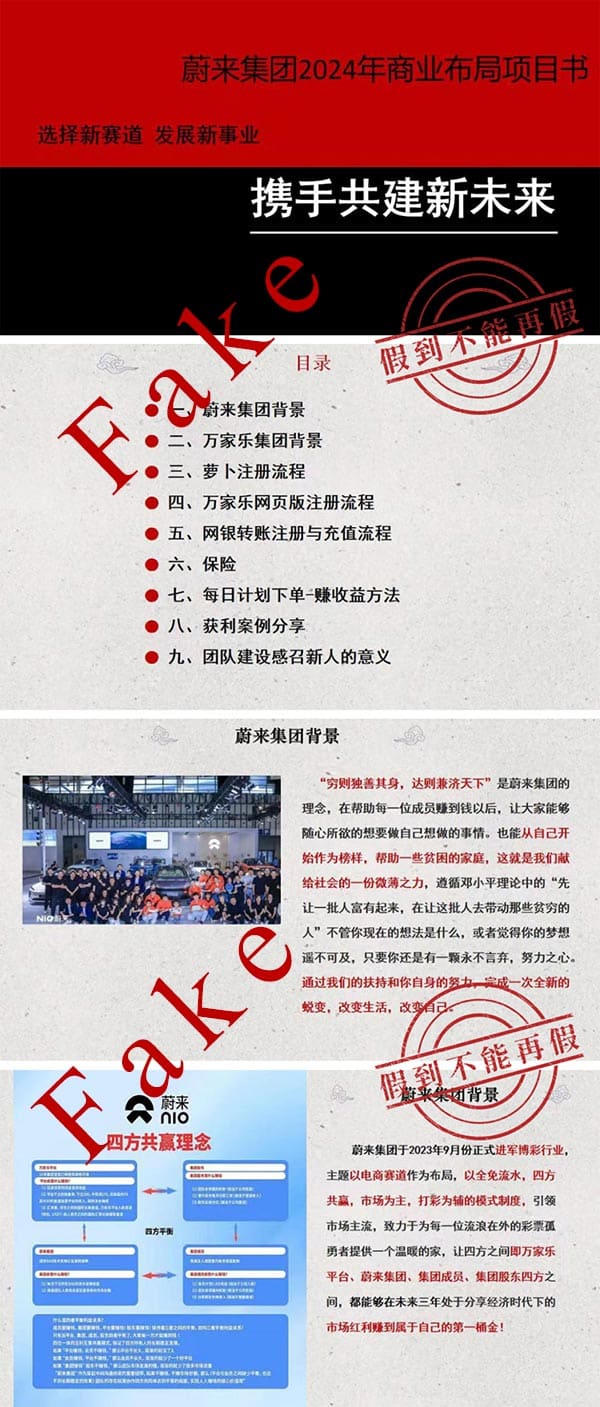Nio said it had never been in the gambling business and warned its community not to fall for the scam, saying it had reported to the police.
(Image credit: CnEVPost)
Nio (NYSE: NIO) has issued a fraud warning saying that scammers are using the company's name to carry out fraudulent activities, reminding users in its community not to fall for the scam.
Some people are spreading fake documents on social media claiming that Nio has entered the gaming industry, these are fraudulent activities and should not be trusted, according to a statement posted on the Nio App today.
The documents claim that users can earn large daily returns if they fund their company now, the statement noted.
Nio has never conducted a gaming or lottery business and has no so-called lottery branch, according to the statement.
The company has reported to the police regarding the "egregious behavior" of such online scams in the name of Nio, according to the statement.
A shoddily produced document attached to the statement claimed that Nio entered the gaming industry in September 2023 with the aim of helping underprivileged families.
"Nio's user activities will all be notified through official channels (including Nio App Nio's official car owner groups), so people should not trust information from unknown channels, and especially be wary of promotions that use 'high yield and high return' as bait," the statement read.
Gambling is illegal in the Chinese mainland.
This is not the first time Nio's name has been used in a scam.
In July 2022, the company issued a fraud warning after someone tried to issue a cryptocurrency under Nio's name.
A Chinese-language announcement about the so-called Nio Coin circulated on the internet at the time, claiming that the company had decided to issue a cryptocurrency in Hong Kong.
Nio issued a warning at the time stating that the company had no plans to issue any cryptocurrency, nor had it authorized any third party to do so.
Below is the fake document that Nio shared on its mobile app today, with the Chinese word "fake" tagged on it to remind users not to fall for it. The English word "Fake" was added by CnEVPost.


